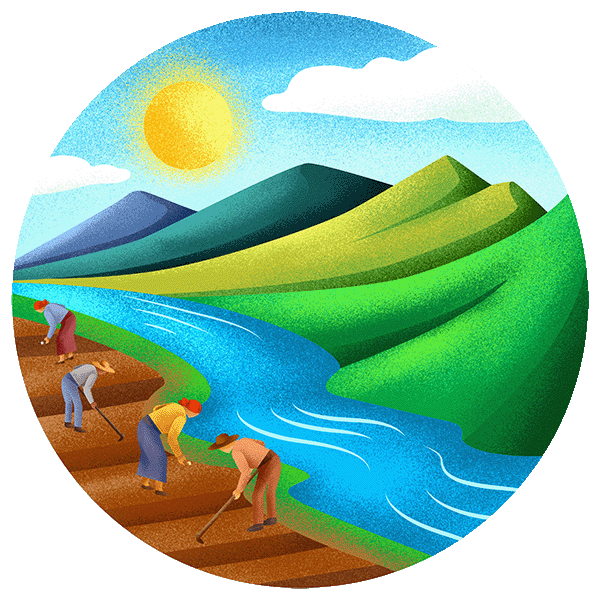
Radio Cotacachi, Cosmovisión Y Saberes Ancestrales, Segunda Parte
Desde las radios comunitarias se producen y trasmiten los conocimientos ancestrales. En este programa podemos conocer sobre la Parteria que aún se sigue practicando en una de las comunidad Indígenas de Ecuador. !Escuche, descargué y comparta!
Imagen:
Capturado por Cultural Survival
Esta es una producción de Radio Cotacachi y distribuido por Cultural Survival. Este programa es gratuito para escuchar, descargar y compartir.
WRD2020 What Does Radio Mean To Africa?
Radio continues to be the medium of choice for poor and marginalized communities.
Community radios are by the people, for the people and owned by the people. On world radio day, Indigenous Rights Radio celebrates the power of radio.
Producer: Shaldon Ferris
Image: Khwedam Radio Services receiving training
Music: Anania2 by The Baba Project, used with permission.
Indigenous Rights Radio Intro track features "Burn your Village to the Ground" by @a-tribe-called-red. Used with permission.
The Nama Festival: An Interview by Eldos FM
This interview is part of a multi radio project with three radio stations in South Africa. Jayd Smith interviews the Namibian organizers of the Nama Festival, and annual celebration that takes place in Keetmanshoop, South Africa.
The organizers of the festival were recently in South Africa, where a video of them singing in Khoekhoegowab has surfaced and was quite popular among the locals.
Jayd Smith from Eldos FM in Johannesburg interviewed Macci Eigus, Dawid Eigub en Dirk Eigub.
Indigenous Peoples and Education
What is the state of education among Indigenous Peoples? Khoe language activist Denver Breda gives us an in-depth understanding of the situation in South Africa in particular with regard to Indigenous peoples as well as people with slave ancestry.
Producer: Shaldon Ferris
Interviewee: Denver Breda
Image: Denver Breda
Music: Anania2 by The Baba Project, used with permission
Indigenous Rights Radio Intro track features "Burn your Village to the Ground" by @a-tribe-called-red. Used with permission.
Ainu People Of Japan - A Story Of Human Rights
The Ainu people, who are approximately 20 000 in number are the only officially recognized indigenous peoples in Japan. After lengthy battles by the Ainu people, the Japanese government finally recognized them as Indigenous Peoples of Japan, which is a real victory for the Ainu community, but Ainu indigenous peoples’ representatives say that the struggles of Ainu are not over yet. They continue to face discrimination, they are not yet free to celebrate their culture, to speak the Ainu language or to express their distinct identity.
October 16th is World Food Day!
Hunger and obesity often co-exists in countries where a home cooked meal is far more difficult to attain than fast food, processed food and foods that are high in sugar. In line with the 2030 sustainable development Agenda, the theme for 2019's World Food Day is Healthy Diets for a Zero Hunger world.In this program, we will talk to Indigenous people, to see how they contribute to Sustainable Development goal number two, which talks about ending hunger and achieving food security and improved nutrition, and promoting sustainable agriculture.
Celebrate Your Indigenous Identity With Food!
October 16th is World Food Day. On this day, millions of people globally gather at demonstrations and exhibitions to observe World Food Day. Initiated by the Food and Agriculture Organization of the United Nations, world food day is one of the most celebrated days of the UN calendar. More than a casual series of festivals, World Food Day is organized to bring awareness about food systems, food production and distribution. Presently, following the UN’s call for action under the Sustainable Development Goals, the world is undertaking a global campaign to build a zero hunger society.
International Year Of Indigenous Languages - Sunuwar, Nepal
In this program, producer Dev Kumar Sunuwar talks about Sunuwar language, the mother tongue of Sunuwar Indigenous Peoples of Nepal, called Koits-lo. The Sunuwar are one of 59 Indigenous Peoples legally recognized by the government of Nepal. They live in the eastern part of Nepal, alongside of the Likhu, Sunkoshi and Khimti Rivers, mainly in the Ramechhap and Okhaldhunga districts. Sunuwar people call themselves “koits” in their mother tongue. According to the 2011 Census, The Sunuwar have a population of 57 thousand, of which only 18 thousand can speak their mother tongue.
International Year Of Indigenous Languages - Tharu, Nepal
Tharu is the mother tongue of the Tharu people, and it is divided into 2 categories, namely Rana Tharu and Dangaura Tharu, both belonging to the Indo-aryan language family. The Tharu peoples areamongst the largest indigenous communities in Nepal, they number 1.8 million people according to 2011 census. The Tharu are one of Nepal’s 59 Indigenous communities, comprised of 50 different clans with cultural differences. Each clan has slightly different dialects and tones when speaking their mother tongues. Among the 1.8 million, some 1.5 million speak their mother tongue.
International Year Of Indigenous Languages - Rai, Nepal
This program includes short voice clips of four different languages spoken by four different sub-clans of Rai Indigenous communities of Nepal namely: Bantawa, Chamling, Kulung and Puma. Rai is one of Nepal’s 59 Indigenous Peoples, legally recognized by the government, but debate among Rai Indigenous communities still continues about Rai not being their ethnic identity, but posts given to the topmost leaders during the ancient kingship system of Nepal.
